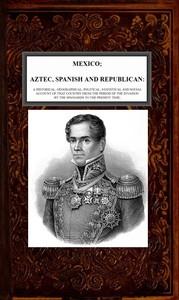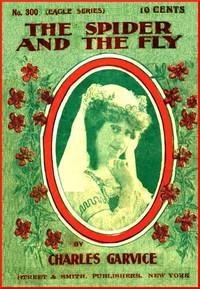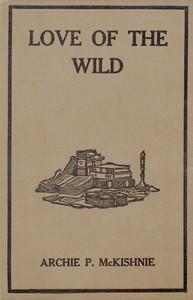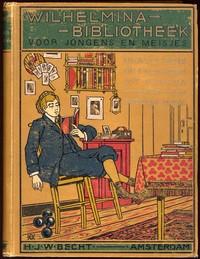Read this ebook for free! No credit card needed, absolutely nothing to pay.
Words: 5135 in 2 pages
This is an ebook sharing website. You can read the uploaded ebooks for free here. No credit cards needed, nothing to pay. If you want to own a digital copy of the ebook, or want to read offline with your favorite ebook-reader, then you can choose to buy and download the ebook.
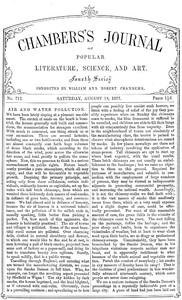

: Chambers's Journal of Popular Literature Science and Art No. 712 August 18 1877 by Various Chambers Robert Editor Chambers William Editor - Periodicals Chambers's Edinburgh Journal
lliery were leaving their work, that a roar of rushing waters was heard. The sound is one that is too well known to the ears of experienced pitmen, and the men at once fled to the shaft and were raised to the surface; but on arrival at the pit's mouth, fourteen of their number--men and boys--were seen to be missing. In an instant and without the slightest hesitation, volunteers nobly stood forward to undertake the task of rescue, and immediately descended the pit again, for the purpose, if possible, of bringing their fellow-miners to the 'bank' in safety. It was found that the water had broken into the mine through some old abandoned workings, and was flowing into all the stalls, headings, and galleries into which the mine was divided. The volunteers found also that all the workings within a few hundred yards of the bottom of the shaft were filled with water up to the roof, and it was at first concluded that all the fourteen missing ones were drowned. A knocking was, however, heard, as if some of the men were confined behind a wall of coal accessible from the outside; and the volunteers at once determined to cut through this wall, which they believed to be about twelve yards thick. The imprisoned men worked from their side too; and in a few hours the obstruction was so far removed as to enable the two parties to speak to each other. The tale of the imprisoned men was, that the water was rapidly gaining on them, and one of them struck through the coal to escape from the rising water. But from one peril they immediately passed to another, for a violent explosion followed, and one poor fellow, Thomas Morgan, was found jammed to death in the hole which had been cut. This sad accident was caused by the sudden escape of air which was pent up in the 'stall' in which they had stood out of the way of the water, and the act of making the hole through the coal in so sudden a manner was equivalent to applying a match to a heap of powder or pulling the trigger of a gun. It was fortunate they were not all killed by the explosion.
After this, knockings were heard farther on in the mine; and it was soon made evident that the position of the other nine men was worse than that of the miners just reached. The wall behind which they were imprisoned was in a heading that was entirely flooded, and they could only be reached after part of the water had been pumped out. Divers were here employed, who went boldly into the flood, and gallantly endeavoured to proceed through the half mile of water which lay between the shaft and the imprisoned miners; but these were unwillingly compelled to relinquish the attempt. On Monday, however, four days after the flooding of the mine, the water was so far reduced as to allow the work of cutting through the coal to be commenced. And here we must pause to mention that this was done with a powerful pumping apparatus, which, with all its appliances, had to be properly and cautiously fitted up before it could be put into successful operation. The poor fellows below had been without food for some five days now, and it thus became a question of patient endurance on the one hand and of unceasing labour and noble efforts on the other. And never did men work more nobly than did those who were thus doing all that lay in the power of man to save the lives of their devoted comrades.
Questioned as to their mode of existence in the mine, the prisoners said they had eaten absolutely nothing, that they were all very weak, and two of their number were completely prostrated. There were only four men and a boy there, the other four having been cut off from their fellows, and had, as since ascertained, perished. The little boy piteously implored the workers to make a hole for him to creep through to his mother. But in spite of their willing hearts, the brave toilers were compelled to proceed more slowly and cautiously than before, in order to prevent the recurrence of a second disaster, by the too sudden escape of the pent-up air. And in addition to this, there was great danger of themselves being engulfed in the waters or killed by the gas, which soon began to make its unwelcome presence felt. Food was passed along a tube to the imprisoned men; but the tube did not work well, and it was eventually found that they had not received the much-desired refreshment. At the last moment, when the hole had been made and the compressed air was let out, a rush of gas took place which put out all the lamps and compelled the workers to return to the 'bank.' What must have been the horror of that moment to those poor fellows within the mine when they heard the retreating footsteps of their anxiously awaited deliverers!
The entombment of nine men, five of whom were known to be in a certain place, and could be saved by cutting through some forty yards of coal, made the question one of time and dogged perseverance on one side, and of hunger and patient endurance on the other. It is just on such occasions as these that the really splendid qualities of the collier shew themselves in bold relief, and turn a pitman into a hero.
Such a deed as this was certain to attract the sympathy of the gracious Lady who has ever the welfare of her people at heart; and the Queen hastened at once to give expression to the national feeling of admiration for these brave men, by extending the institution of the Albert Medal for saving life at sea to similar acts performed on land, and giving directions that these humble Welsh miners should be the first recipients of the honour.
A national subscription was also opened by the Lord Mayor, and a large sum collected for the rescued and their rescuers, sufficient to place them beyond the reach of poverty, and shew the world that England will not willingly let die the remembrance of as noble and heroic a deed as ever graced the annals of a Christian people.
QUACK MEDICINE.
'The belief in quack medicine is one which exists in strength proportioned to the ignorance of the persons who take it. There are certain charms, to some minds, in being able to "doctor" themselves, and to do without the properly authorised medical practitioner. There seems to be with these persons a sense that, in not having paid a fee for advice, they have in a manner gained something. There appears to be also a love of experiment, with a sense behind it that, if their own experiment fails, they can at worst fall back on the skilled physician to amend their mistakes, and to set them up again according to the known and acknowledged rules and practices of medical science. Moreover there is a kind of belief in empirical treatment, which is probably a "survival" from the ancient belief in charms and witchcraft; else how can people possibly put trust in medicines which are advertised as being adapted to cure all manner of diseases of thoroughly differing characters?
'But even among quack medicines there are degrees. There are some of which ordinary medical men readily avail themselves, and which under proper direction may be found really useful. The danger with regard to them is that persons finding such to be useful in the doses prescribed by their medical advisers, take doses on their own responsibility, which prove hurtful, sometimes even fatal in their effects. On the other hand there are a few--though we must confess very few--whose virtues chiefly arise from the faith with which they are taken; and these are as innocuous to the patient as they are profitable only to the vendor. But a very large class--in fact by far the largest--are really positively hurtful. They are described by titles which give no real idea of their character and composition, and they are taken by people much to their harm.
Printed and Published by W. & R. CHAMBERS, 47 Paternoster Row, LONDON, and 339 High Street, EDINBURGH.
Transcriber's Note--the following changes have been made to this text:
Page 525: he to be--be waited upon.
Free books android app tbrJar TBR JAR Read Free books online gutenberg
More posts by @FreeBooks

: Mexico Aztec Spanish and Republican Vol. 2 of 2 A Historical Geographical Political Statistical and Social Account of that Country from the Period of the Invasion by the Spaniards to the Present Time. by Mayer Brantz - Mexico Description and travel; Mexic
